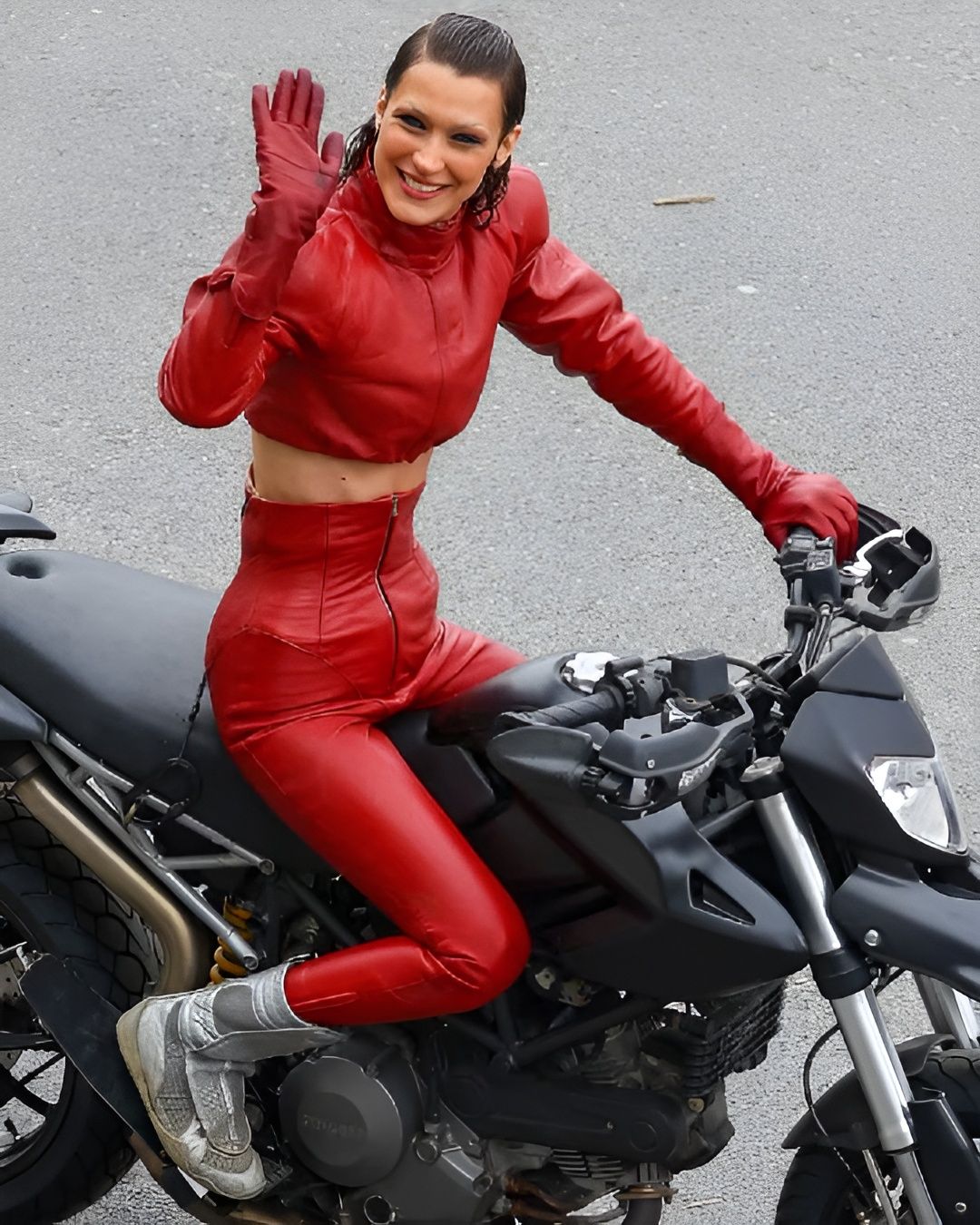
The predictable downfall of influencer brands How Matilda Djerf and Danielle Bernstein lost credibility
The life of an influencer is punctuated by collaborative projects with mega brands, participation in the most awaited fashion shows, in some cases the launch of their own beauty or clothing line, but almost always by a slew of controversies. This October, the crosshairs of social criticism were aimed at Matilda Djerf, the ash-blond Swedish heroine followed by over 3 million followers. The motive? As one might expect from a company that mimics current trends, the accusation that she has become a copycat. The murder weapon? Fruit-patterned pyjamas. It is unlikely that the empire built by Djerf in recent years will collapse completely, yet past examples show that, at least in the fashion industry, a couple of controversies can be enough to irreparably ruin entire reputations.
@rachelkaejenkins3.0 Replying to @Khlo SLAY AMAZON OMG
Despite the fact that it was Djerf Avenue itself, the brand founded by the promoter of the clean girl aesthetic, the first to throw out the copyright infringement stone at some users on TikTok, Matilda Djerf now finds herself faced with an exalted crowd of haters - once lovers. It all started when some TikTok creators who were publishing Djerf Avenue dupes started receiving trademark notices. At the sight of Amazon's imitation pyjamas, identical to those designed by Djerf, the brand lashed out at the micro-influencers. Djerf Avenue's official page then posted on its social channels, «Unfortunately, there has been a recent surge in websites selling products with our design and owned prints/artworks. In light of this, and to safeguard our prints and the individual print designers - we have an external intellectual property (IP) firm monitoring copyright infringement.» Despite Djerf's company's intention to counteract possible copycats, the situation was completely turned on its head due to a small detail that in the hyper-vigilant world of social media never goes unnoticed: a criminal record - in today's times also known as a digital footprint.
Like all fashion content creators, Matilda Djerf's career began when a couple of photos of her outfit went viral on social media. Her clean, formal style, firmly centred on a Scandinavian aesthetic, and thus elegantly straddling simplicity and functionality, convinced fans from all over the world that hers was an avant-garde look. Later dubbed the 'Clean Girl Look', Djerf's personal style was acclaimed, copied and reinvented, yet her name always appeared in the credits. With the official launch of Djerf's brand in 2019, an alleged theory of cultural appropriation had emerged online, as her style codes also echoed those of the South American community, but the accusation was short-lived; Djerf Avenue's imagery was now too anchored in the social collective as a designer dream in sleek buns, until now without a wrinkle. In March 2023, the brand reported a $35 million turnover.
The first of the accusations levelled at the influencer-designer was the nonchalance with which she lashed out at micro-influencers. While the average price of a Djerf Avenue garment is between 200 and 300 euros, those promoted by the reported TikTok creators cost much less. In this regard, his designs were also criticised as being too unoriginal to be 'copied', as they themselves take inspiration from vintage clothes and accessories, as well as from pieces from Djerf's wardrobe. «Go touch grass», was the favourite phrase of the entrepreneur's former fans. After all, she too started out as a micro-influencer, and Djerf Avenue's current offerings are limited to - fruit salad pyjamas aside - milleraies shirts, camel-coloured trench coats, black cotton skirts and sheath dresses, and a few tops with lace inserts. The controversy affecting Djerf this week is vaguely reminiscent of that of the equally popular Danielle Bernstein, although in her case the situation is far more serious. Accusations of copying independent designers have been dogging her for years, ever since she launched her WeWoreWhat brand (ironically renamed WeStoleWhat by hardcore haters) yet the digital entrepreneur continues undaunted on her way, her eyes fixed on the prize, but her comments turned off. «A big mistake I made when this all happened was to respond to all the claims that came my way,» Bernstein told a recent interview with BoF. «Learning to completely block out that noise and not deal with it not only changed things for my mental health, but also for my team and the brand.»
@kelsey_kotzur So disappointing. #daniellebernstein #weworewhat #nyc original sound - kelsey kotzur
On the one hand, the success of Djerf Avenue and WeWoreWhat represents a success story and inspiration for many micro-influencers who, like them years ago, dream of international fame. On the other hand, they only worsen the relationship between independent designers, spokesmen for originality and innovation, and the giants of mainstream fashion, justifying their methods of operation by a creation process that is reduced to imitation of one trend or another. Like them, the French Simone Porte Jacquemus, the Italians Gilda Ambrosio and Giorgia Tordini, and the American Telfar Clemens also have a large online following, but unlike the brands created post-fame by Djerf and Bernstein, the great achievements of these three creative forces preceded the surge in engagement of their personal accounts. What social critics sometimes forget is that, unfortunately, the media reach of a product does not guarantee its uniqueness or quality; on the contrary, capitalising on one's followers by founding brands with no artistic vision, whatever the record turnover, automatically banishes your company's name from possible access to fashion heaven, be it Fashion Week or more simply your own reputation.
Gen z will be like “Matilda Djerf dupe!!” “skims dupe!!!!” and then show a grey long sleeved t shirt https://t.co/jIdRPWskD6
— leah (@leahtfa) January 3, 2023
The continued rise and record sales of brands such as Djerf's and Bernstein's - the American entrepreneur claims that WeWoreWhat turned over $30 million in sales last year - are proof that, despite the controversies they find themselves in, content creators always manage to land on their feet. We don't know if this will also happen to the fantastic world of Matilda Djerf - although we could put all our fish on an escaped downfall - what we can hope for is only that this story will open the eyes of the social public about who in fashion really deserves space.














































